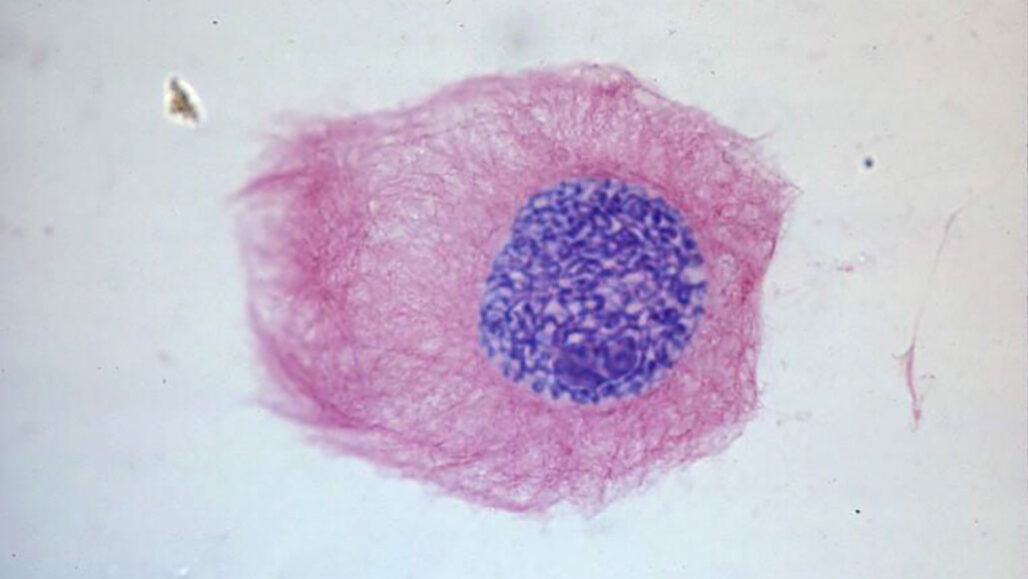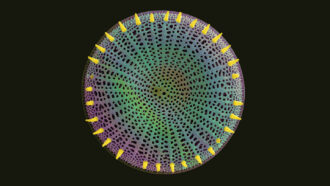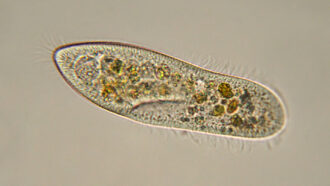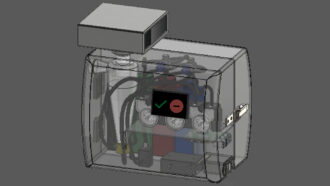atom: The basic unit of a chemical element. Atoms are made up of a dense nucleus that contains positively charged protons and uncharged neutrons. The nucleus is orbited by a cloud of negatively charged electrons.
atomic: Having to do with atoms, the smallest possible unit that makes up a chemical element.
atomic number: The number of protons in an atomic nucleus, which determines the type of atom and how it behaves.
biology: The study of living things. The scientists who study them are known as biologists.
cell: The smallest structural and functional unit of an organism. Typically too small to see with the unaided eye, it consists of a watery fluid surrounded by a membrane or wall. Depending on their size, animals are made of anywhere from thousands to trillions of cells. Most organisms, such as yeasts, molds, bacteria and some algae, are composed of only one cell.
chemistry: The field of science that deals with the composition, structure and properties of substances and how they interact. Scientists use this knowledge to study unfamiliar substances, to reproduce large quantities of useful substances or to design and create new and useful substances. (about compounds) Chemistry also is used as a term to refer to the recipe of a compound, the way it’s produced or some of its properties. People who work in this field are known as chemists. (in social science) A term for the ability of people to cooperate, get along and enjoy each other’s company.
comet: A celestial object consisting of a nucleus of ice and dust. When a comet passes near the sun, gas and dust vaporize off the comet’s surface, creating its trailing “tail.”
context: The setting or circumstances that help explain an event, some statement or some conclusion.
core: Something — usually round-shaped — in the center of an object. (in geology) Earth’s innermost layer. Or, a long, tube-like sample drilled down into ice, soil or rock. Cores allow scientists to examine layers of sediment, dissolved chemicals, rock and fossils to see how the environment at one location changed through hundreds to thousands of years or more.
element: A building block of some larger structure. (in chemistry) Each of more than one hundred substances for which the smallest unit of each is a single atom. Examples include hydrogen, oxygen, carbon, lithium and uranium.
genetic: Having to do with chromosomes, DNA and the genes contained within DNA. The field of science dealing with these biological instructions is known as genetics. People who work in this field are geneticists.
mass: A number that shows how much an object resists speeding up and slowing down — basically a measure of how much matter that object is made from.
nervous system: The network of nerve cells and fibers that transmits signals between parts of the body.
neuroscience: The field of science that deals with the structure or function of the brain and other parts of the nervous system. Researchers in this field are known as neuroscientists.
particle: A minute amount of something.









